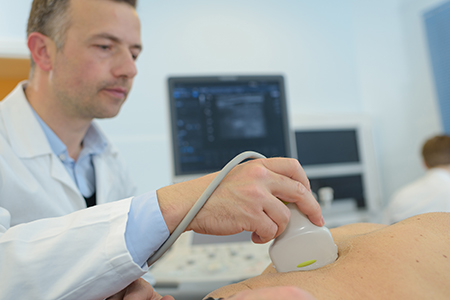Find yourself wondering: How should I prepare for an annual physical exam? And, what should I bring to an annual physical exam appointment?

Having an annual physical exam is critical to achieving and maintaining your optimal health. Many patients do not have an understanding of how to prepare for an exam or that they need to prepare at all. Often times even deadly diseases and conditions can be present in their early stages and not display obvious symptoms.
Physicians are physicians because they have the training and education that is necessary to identify issues with our health that we cannot and do not know to look for.
You should prepare for your annual physical exam by making an appointment, using appointment cards as reminders, gathering the information and documents that are needed, and gather any prior records forwarded from your previous doctor if possible. Keep in mind that all these guidelines will also apply for any kids check up appointments as well.

What is pertinent to my medical history?
Gathering all the information necessary to your health history will give your physician the ability to make a detailed and proper appraisal of your health since it is their first physical with you.
Medical problems that have been chronic and consistent for long periods of time, serious illnesses, all past official diagnoses, major surgeries and procedures and any conditions that are already presently being treated via medications are all imperative components to have put together for your first physical with a new physician.
Often times patients will forget to mention conditions that are already being treated with medications because they simply forget about them, however, this is also a crucial part of how to prepare for an exam. You want to review your personal medical records and take notes so that you don’t forget or leave anything out that could be important.

How much family history do I need?
At your patient first physical, you are going to need to provide a good amount of information regarding your immediate family members health issues, such as your biological parents and biological grandparents – in addition to your biological siblings. It is important to gather anything that has even a small genetic component to it because it is imperative information that impacts the physicians approach to disease screening.
You want to gather any doctors papers that these family members may have regarding chronic or serious illness and disease to help your physician evaluate your health from a genetic perspective. Your doctor’s appointment template and your annual physical checklist both will likely have sections to record relevant family history because this is a crucial component of your physical exam preparation.

Should I bring my medications with me to the physical exam appointment?
It is not completely necessary to bring your actual medications with you to your patient first physical, however, it is necessary to bring the information on the medication bottle.
If writing this information down on your annual physical checklist or on the back of your doctors papers is too much of a task, you can always snap photos of the medications labels and bring those for your doctor to have. Even medications that are not prescription medications and are just vitamins and supplements are important to take down information on as well so your doctor has a full and accurate physical exam story to refer back to at a later time.

What other information do I need?
Other information that is necessary to your physical exam preparation includes any specialist doctors you have seen or are seeing and any upcoming specialist appointment you have set up. It is also helpful to gather information on all of the non physical appointment that you have had in the past 12 months so that your doctor can see a bigger picture of your more recent health ailments.
If you see an id doctor, or infectious disease doctor you will want to provide their information as well in addition to information about your alternative doctor. Anything that you have allergic reactions to regardless of if it is a medication or not, your doctor should be fully aware of it.
You also need to familiarize yourself with your history of vaccinations if you do not have doctors papers that you can bring to provide that information. Most of this information will be part of your doctor’s appointment template and your annual physical checklist so you don’t forget them.

What should I bring with me to my appointment?
You need to bring notes regarding all of the above outlined information as well as the business cards of your id doctor and your alternative doctor.
You should also bring any upcoming appointment cards if you have any specialist appointment set up, and any diagnostic results from diagnostic tests or procedures that your specialist doctors have conducted. Any lab results that you can find copies of on paper would also be very helpful to your physician in addition to any discharge or summary records from any non physical appointment you have been to in the last 12 months.
Often times patients tend to get distracted and forget to ask all the questions they really wanted to during the annual physical exam, so it is recommended that you bring a list of questions you want to ask as a part of your notes. While some of this may sound redundant and unimportant, it is information that your physician needs to add into your physical exam story, since they too are human and cannot remember every detail of every patient’s history and information.

Should I fast before my appointment?
Usually, if your doctor intends to run lab work and needs you to fast prior to your appointment, they will tell you when you schedule the appointment.
Not all physicians have on site labs that operate all days of the week, so if you fasting just in case sounds unpleasant to you, it is worth a quick phone call to verify whether you should be fasting or not. If you are told to fast prior to the appointment, it should be nothing but water for eight hours prior to the time of your appointment.
For kids check up appointments, often times people will assume that their child will not be having labs done that day, but that is not always the case so be sure to check for fasting with those appointments as well.

What about my attire? Does it matter what I wear?
As far as attire for your annual physical, it is best to wear clothing that is not too tight or too difficult to remove in case you are asked to wear a gown, which is a fairly common practice.
You also want to think about making yourself a doctor bag to keep all of the papers, notes, cards, and other aforementioned information together and protected so that you aren’t trying to handle loose papers and so that they don’t get damaged from rain or other factors. Bringing yourself some sort of doctor bag is also quite helpful if you are asked to change into a gown so that your clothes aren’t left loose on an exam table, chair, or floor.

What will my doctor ask me during an annual physical exam appointment?
Whether your physical exam is a Kaiser physical exam or another preventative physical that is covered by a different medical insurance provider, the questions asked during the exam are pretty much the same.
The physical exam is more so done according to the doctors preferences while following the Kaiser physical exam (or other providers) guidelines and requirements. All of the questions that you have already answered on all of that patient intake paperwork will be asked again and further clarified on.
Your physician will also ask about some lifestyle factors regarding smoking, exercise habits, diet, occupation, marital status, family life, dental hygiene habits, sunscreen use, mental illness, eating disorders, and more. Sometimes certain factors are not listed on the intake paperwork because patients may be too embarrassed to write them down on there.

What makes an appointment ineffective?
The most prevalent reason that an annual physical exam would be ineffective is if the patient is not prepared and or not honest with the physician. Your doctor cannot help you accurately if you do not provide honest answers and complete information for them.
It gets tricky when a patient is not prepared with any personal medical history information and any familial medical history information because the physician does not have any starting key points to go off of when screening for general wellness and genetically related disease and conditions.
If you do not know what medications you take and what the dosage is, (this also includes vitamins, over the counter medicine, and supplements) the physician will not know if or how you are currently being treated and what you are being treated for exactly.

What are the most common questions people ask during annual exam appointments? And, how are these questions answered?
The most common question that people ask during their annual physical exam is “can you help me lose weight?” or something along those lines.
The answer you will receive will be based on many personal factors specific to you, but most often includes mention of diet and exercise habits.
Another common question that is asked during physical exams is “can you help me not feel tired or sluggish all the time?” or something similar.
You will get an answer that is even more personalized to you because there are a number of medical reasons why you would feel fatigued all the time.
Other symptoms would be discussed and then usually your physician would begin lab work to eliminate the possible cause of it. Any questions you ask during your annual physical are going to be answered from a medical perspective and are going to be specific to you because no human is made exactly the same, so therefore you should not expect to receive any kind of “cookie cutter” answers to your questions.




